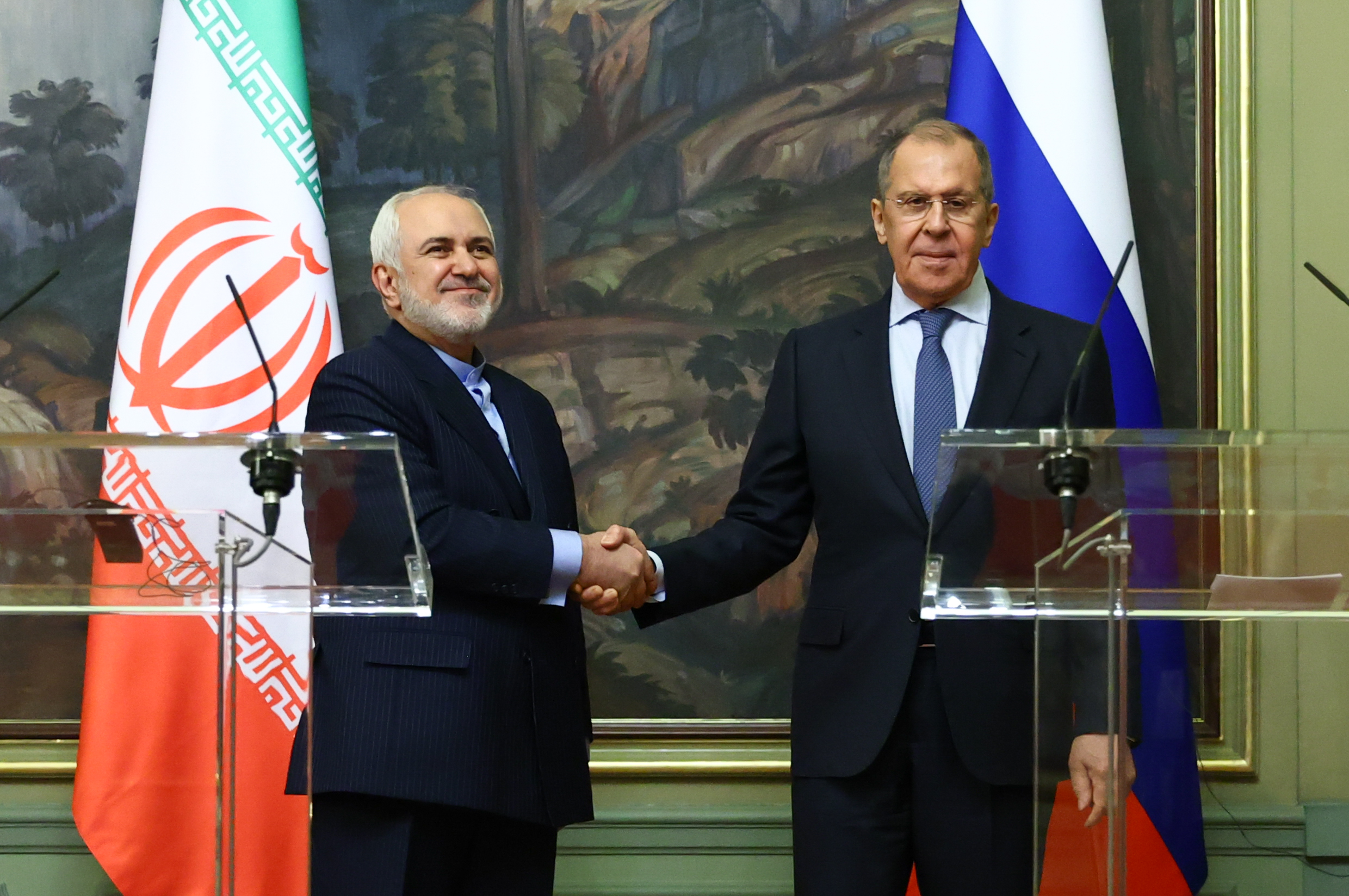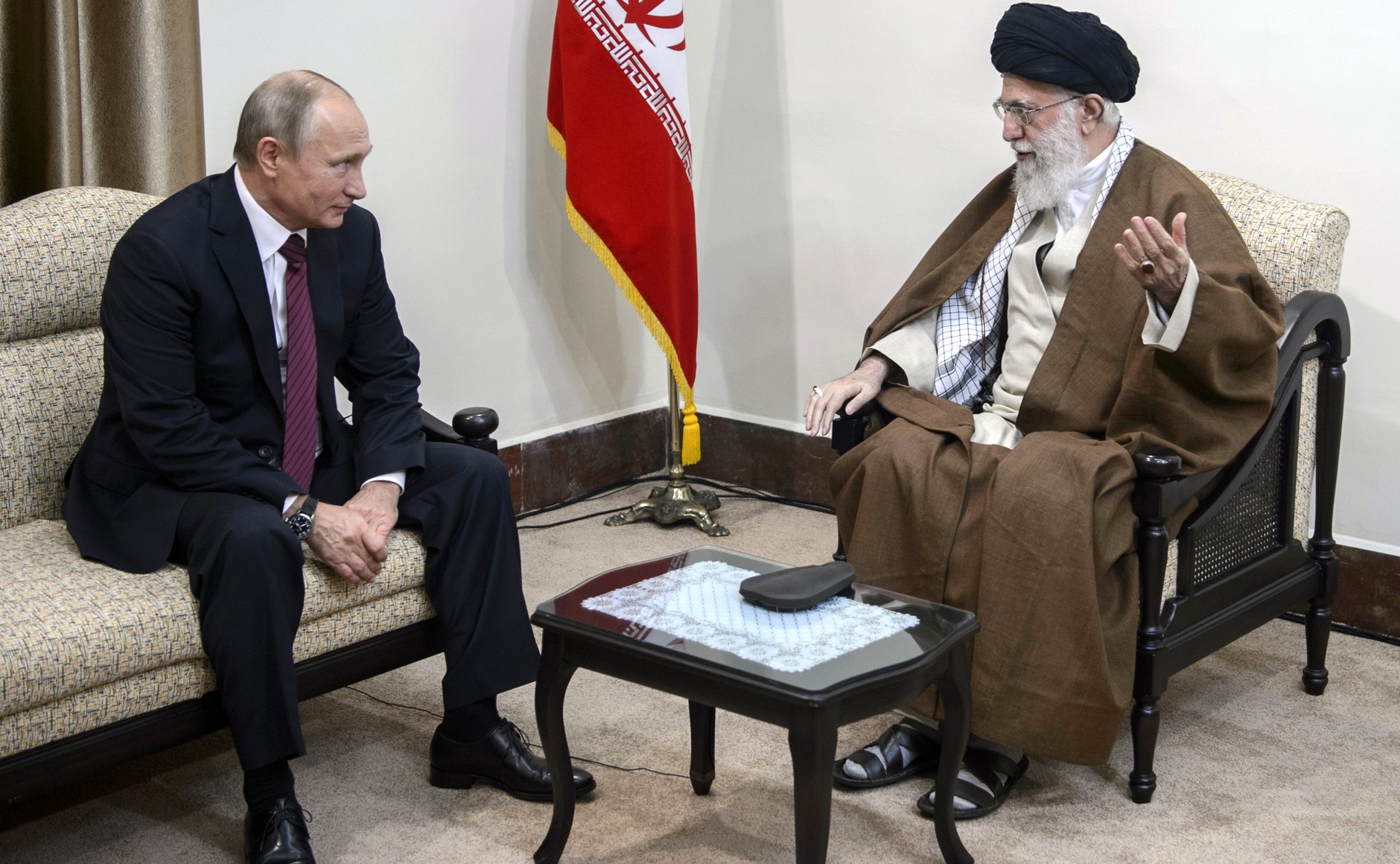Publications
INSS Insight No. 1504, August 4, 2021
Growing trends in the Middle East over the past year have pushed Russia and Iran closer, even though conflicting interests prevent them from becoming strategic allies. Moscow and Tehran coordinate positions in the negotiations underway in Vienna regarding a return to the nuclear deal and cooperate in several areas to dislodge American influence, and there is greater publicity regarding military-defense relations that are expected to lead to weapons deals. Russia from time to time even conveys messages of restraint to Jerusalem, lest escalation between Israel and Iran develop rapidly in the northern arena. However, Moscow’s desire to limit Iran’s entrenchment in Syria remains and affords Israel leeway in this theater. Therefore, Israel could play a constructive role in advancing political discourse between the Biden and Putin administrations regarding Syria.
Over the past year, Russia and Iran continued to strengthen their political relations, at the center of which are coordinated positions regarding the nuclear deal. In the summer and fall of 2020 Russia firmly opposed, including at the UN Security Council, the Trump administration's attempt to activate the snapback mechanism and to prevent the removal of the weapons embargo on Iran. In the negotiations underway in Vienna regarding a return to the nuclear deal, which began after President Biden entered the White House, of the six powers involved in the negotiations the Russian positions the closest to the positions of Iran. In addition, Moscow has displayed a tolerant approach toward Iran's ongoing violations in the field of uranium enrichment and accumulated stockpiles, although it has called on Tehran to refrain from this activity. Furthermore, the Russians are pessimistic about the ability of reaching agreements with Iran on limiting its missile capabilities and containing its aggressive regional policy, and thus also oppose the American demand to include these issues in the negotiations.
Iranian Foreign Minister Mohammad Javad Zarif visited Moscow in January 2021, soon after the inauguration of the Biden administration, where he signed a cooperation agreement with Russia on the issue of "security in the information realm" (which in Russia's eyes includes the cyber field). Many interpreted the agreement intended for technological cooperation between the countries, but in practice, it aims mainly at advancing similar worldviews in international organizations regarding sovereignty in the cyber realm and non-intervention in internal affairs.
🤝 🇷🇺🇮🇷 In Tehran S.#Lavrov met with the President of Iran @HassanRouhani.#RussiaIran #Lavrov #Rouhani #Diplomacy pic.twitter.com/tcUg8lvy8y
— MFA Russia 🇷🇺 (@mfa_russia) April 13, 2021
Nine months have passed since the removal of the embargo on weapons sales to Iran, without Russia and Iran having publicly announced new deals, but behind the scenes, their cooperation in this area is deepening. On the eve of the Putin-Biden summit (June 16, 2021), it was reported in the American media that Russia was about to provide Iran with an earth observation satellite that would supply it precise intelligence, including for military purposes. However, President Putin denied that Russia intends to sell a satellite to Iran, and also claimed that there is no progress on additional weapons sales between the countries.
Clearly, the broad scope of American sanctions on Iran and Russia is pushing the two to hide the extent of their military relations from the media. Given the Countering America's Adversaries through Sanctions Act (CAATSA legislation), countries acquiring weapons from Moscow run the risk of paying a high political and economic price vis-à-vis Washington. However, Moscow for its part took legislative measures to absolve military bodies of publicity requirements, and imposed heavy punishments on journalists who reported such connections. The Russian weapons industry is in great need of the Iranian market, and can provide Tehran with good, long-term financing conditions that address Iran's current financial difficulties.
Iran, which in any case is under sanctions, is not concerned about acquiring Russian weapons, and lacking better alternatives for purchasing advanced weapons platforms, could sign new deals with Russia after the outcome of the talks in Vienna becomes clear. In the past it was reported that Iran expressed interest in acquiring Su-30 fighter aircraft, Yak-130 training aircraft, the S-400 air defense system, diesel submarines, surface ships, Bastion coastal defense systems (which are armed with Yakhont missiles), and T-90 tanks.

In the past few months there has also been greater military cooperation between the countries, especially in the naval field. Since the beginning of 2021, the Russian navy has reportedly protected Iranian ships in the Mediterranean Sea en route to Syria. In April, the national Russian news agency Sputnik reported the establishment of a Russian-Iranian-Syrian coordination mechanism in the Mediterranean Sea, in order to ensure the supply of oil from Iran to Syria. These reports appear to be a message to Israel, against the backdrop of attacks against Iranian ships attributed to Israel. According to Israeli sources, these ships carried "game-changing" weapons to Syria, and not just oil cargo. In February, on the eve of the start of the Vienna talks, Russia conducted a joint naval exercise with Iran (and despite early Iranian reports, China did not join). In July, for the first time, Iranian ships participated in Russia's Navy Day parade in St. Petersburg. Meanwhile, Russian and Iranian military forces in Syria continue to cooperate to defend the Assad regime, but there have also been reports of tensions between them, which sometimes deteriorate into violent confrontations between proxy forces of the two sides.
In addition, this year Russia strengthened its relations with the Lebanese Hezbollah, and continued to maintain high-profile relations with Hashd al-Shaabi, which comprises dozens of pro-Iranian militias in Iraq. In March, a Hezbollah delegation visited Moscow for the first visit in a decade and met with Foreign Minister Sergey Lavrov – the most senior figure that representatives of the organization have ever met. Unlike European countries or the United States, Russia opposes defining Hezbollah as a terrorist organization, sees it as a legitimate political force in Lebanon, and maintains close relations with it in the context of joint combat with Iran in Syria. In April, Falih al-Fayyadh, head of the Hashd al-Shaabi umbrella organization, visited Moscow and met with Nikolai Patrushev, Secretary of the Security Council of Russia. Formally, Falih is Patrushev's counterpart in the Iraqi hierarchy, but the United States is unwilling to be in contact with him due to his deep ties with Iran.
At the same time, however, there are ongoing conflicting interests between Russia and Iran, and they affect the two countries' ability to deepen their relations. The deep suspicion toward Russia among the Iranian leadership was illustrated in April in a leaked recording in which the Iranian Foreign Minister accused Russia of attempting to prevent the nuclear deal in 2015. The Iranians were angry that Foreign Minister Lavrov, while in Doha as part of his trip to the Gulf states last March, announced the establishment of a new political framework including Russia, Turkey, and Qatar. Tehran is troubled by its having been skipped by Lavrov on this trip, as well as by the establishment of a framework for advancing the political arrangement in Syria, which is seen in Iran as competing with the Iranian-Russian-Turkish Astana Forum. Russia's strengthened relations with the Gulf states and with Israel (and in particular its acceptance of the attacks against Iranian targets in Syria) are seen as contravening Iran's military interests. Another dispute between the countries is Russia's provision to Iran of Sputnik vaccines against the COVID-19 virus, with criticism sounded in Iran that Russia is not providing the vaccines in the amounts and at the rate agreed upon.
Russian-Iranian economic relations have stagnated for many years, apparently due to the competition between them in the energy market and the limited attractiveness of Russia's commercial output to the Iranian economy. The expectations of signing a new strategic framework agreement between Russia and Iran (similar to the agreement signed in March between China and Iran) have not been fulfilled. In March the sides marked the extension of the "agreement on the basic principles of relations between Russia and Iran," which was signed in 2001. In practice, this is a non-event, as the agreement is automatically extended every 5 years, unless one of the sides opposes doing so.
Conclusion and Assessment
Iran and Russia share a host of regional and international interests, chief among them reducing the American presence and influence in the Middle East, but several disagreements limit the depth of their relations.
Still, several trends can be identified that will provide greater impetus to continued Russian-Iranian cooperation in the coming months. First, in almost any scenario regarding the future of the nuclear deal, Tehran's relations with the West will continue to be tense, such that it will not be able to give up on its partnership with Moscow (and with Beijing). This is especially true given the strengthening of the hardline camp in Iran with the election of Ebrahim Raisi as president. Second, if the nuclear deal is renewed, Iran will be able to return to the global oil market, in which Russia is a significant player in regulating its prices through OPEC Plus. Therefore, there will be an increasing need to coordinate their energy activity. Third, the departure of American forces from Afghanistan will force Moscow and Tehran to tighten the connection between them in order to prevent the spillover of threats of radical Islam into their respective territories.
Russia is concerned that Israeli-Iranian military escalation on Syrian territory would harm its interests, and seeks to restrain Israeli activity (as also reflected in statements by the Russian military, starting on July 22, apparently following an increase in attacks attributed to Israel in the preceding days). However, given Russia's broader interests, which it shares with Iran, and the limitations of Russian power in Syria, Moscow would prefer to avoid active measures to limit Iran's entrenchment in the country, and, rather, continue to turn a blind eye to Israel's activities in this arena. If in-depth American-Russian dialogue develops regarding Syria, which would accompany readiness by Washington for a certain quid-pro-quo, Russia could adopt a more active approach against Iran. Though the chances of having that kind of a dialogue currently seem low due to the distrust between Moscow and Washington, Israel should consider facilitating such a discourse.



